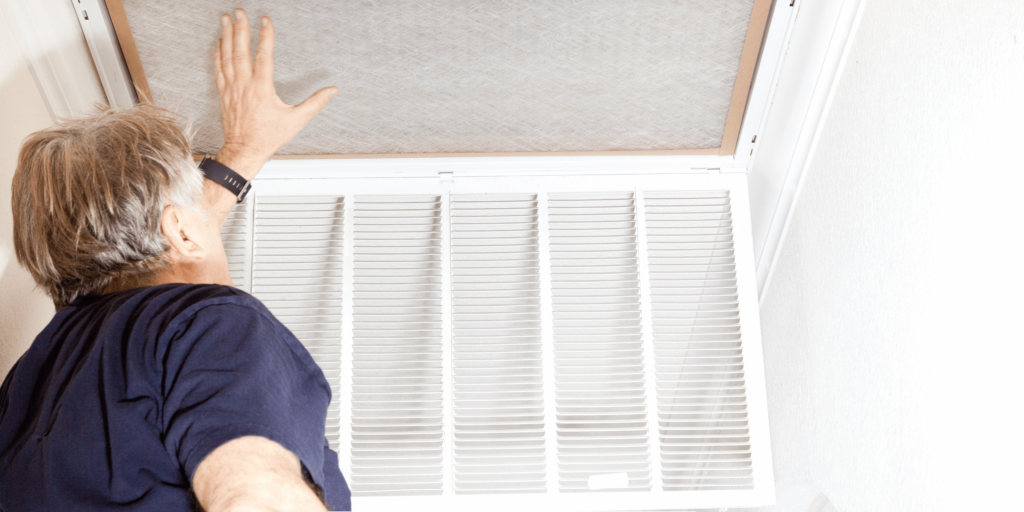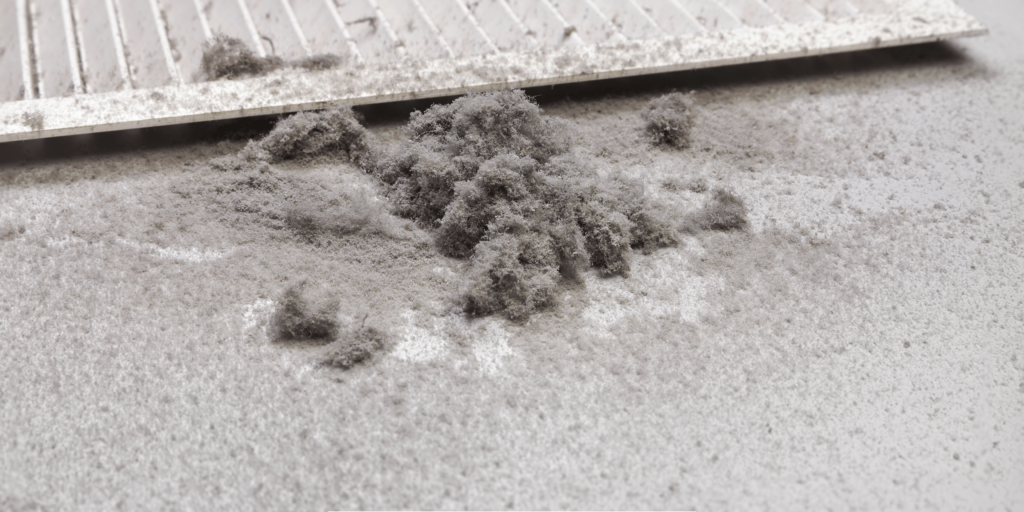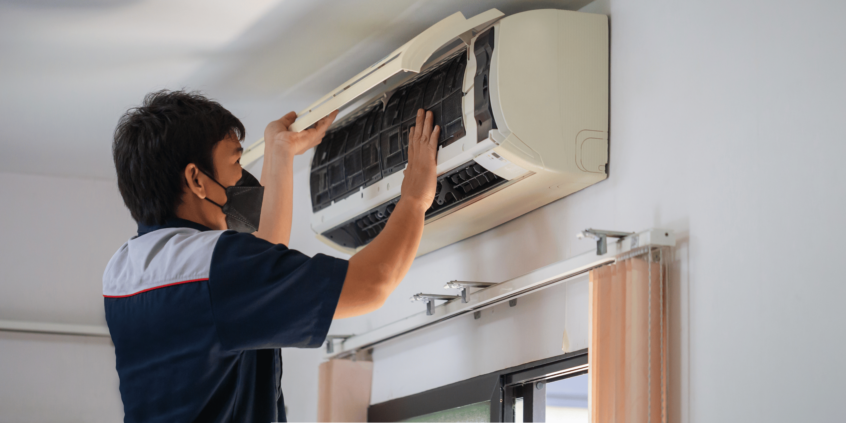When the air conditioner filter is clogged, it leads to different issues that, include minor and severe ones. The maintenance of the AC filter is perhaps one of the most crucial chores that every homeowner should undertake routinely. If not done, it may lead to costly repairs of the HVAC or even total system breakdowns. This article discusses potential problems that arise when an AC filter is allowed to accumulate too much dirt.
Reduced Airflow
The first effect of a clogged filter is the air circulation in the house, as there will be limited air passing through the AC. Filters are intended to capture particles so clean air can circulate through the HVAC system. The flow rate decreases as more debris accumulates on the filter, and only a limited amount of air can pass through the filter. This results in the air released through the vents being less forceful and less able to flow to every part of the house. Generally, the degree of cooling power loss is more profound in such peripheral rooms as those far from the central unit.

Higher Energy Bills
With less air passing through the system, the AC system struggles to try and cool the house. This results in longer usage time and high energy consumption as it cannot sustain the thermostat set temperature. A clean filter enables the system to maintain comfortable conditions in the home quickly. Still, a dirty filter can cause energy costs to rise to as much as 15 percent, or even higher, during the cooling season.
Strained HVAC Components
The increase in run times also puts pressure on crucial HVAC parts such as the compressor, condenser coil, blower motor, and evaporator coil. Air conditioners are expected to work in cycles to cool the house and not for continuous use. Suppose they have to run constantly because of a clogged filter. In that case, it creates extra stress, which causes faster deterioration of some of the most critical components in the system.
Compressor Failure
The AC compressor is responsible for workload to circulate refrigerant in the system. During longer run times, compressors can overheat and eventually fail if a dirty filter is causing the compressor to overload. Replacing a bad compressor is about $1000 and more often closer to $2000. The fact that filters are essential and their maintenance can save on this cost alone makes them worthy of attention.
Evaporator Coil Damage
Inability to replace a clogged filter also leads to the formation of ice on the copper evaporator coil and this destroys the machine. When airflow is low, moisture can build up on the coil’s surface, which is not a good sign. This moisture chemically reacts with the copper, it corrodes the copper and small holes appears as a result. The main problem here is that once an evaporator coil corrodes, the system loses its cooling capability and may need to be replaced entirely.
Poor Indoor Air Quality
Regular, unfiltered airborne particles including dust, pet fur, mould, bacteria, and allergens are circulated back into the home due to a dirty filter screen failing to filter them effectively. This significantly degrades the indoor air quality and enables allergens or contaminant, capable of causing illness, to circulate within occupied areas. Close contacts whose health conditions are already vulnerable due to respiratory diseases or immune deficiencies are most at risk.
Mold Growth Concerns
Inadequate air circulation in ducts and other components of the heating and cooling system can also foster mold development due to the moisture trapped by the low air circulation. This mold gets picked up by the vents alongside normal air flow once the dirty filter has been replaced. However, by that time, the tiny mold spores may already have affected the health of individuals living in the house. Mold removal by professional staff is required if the situation gets out of hand.
Debris Buildup in Ducts
However, when the filter gets clogged, dirt, dust, and other debris will continue to circulate within the duct system and build up downstream of the clogged filter. This debris gets carried into the living spaces as well as minimizes the general capacity of the ducts to transport conditioned air. At times, massive obstructions in parts of the duct may be present. This may involve pulling out and replacing those portions of the duct system that have been contaminated after a long duration of minimal filter throughput.

Voided Manufacturer Warranty
Remember, even simple things such as changing the AC filter might be detrimental to the warranty of new systems or components. Many warranties include provisions that direct the owner to clean the coils, replace the filters, and perform other routine maintenance tasks in order for the warranty to remain in effect. In the case of a dirty filter that leads to a damage of parts that would otherwise be deemed to be within the warranty, lack of filter maintenance can act as a basis for a manufacturer to disown a warranty claim.
Maintain Indoor Comfort and Health
Such a vast list illustrates why it is critical to keep the filters of air conditioning systems clean from debris to ensure proper functioning. Filters should be checked at least once a month during the cooling season and should be replaced as soon as they look dirty. This simple preventative measure helps protect against high energy bills, expensive heating and cooling system repairs, and the adverse effects of unhealthy indoor air quality. Maintaining the filter replacement schedule also has the benefit of preserving the system and the family inside the home.

